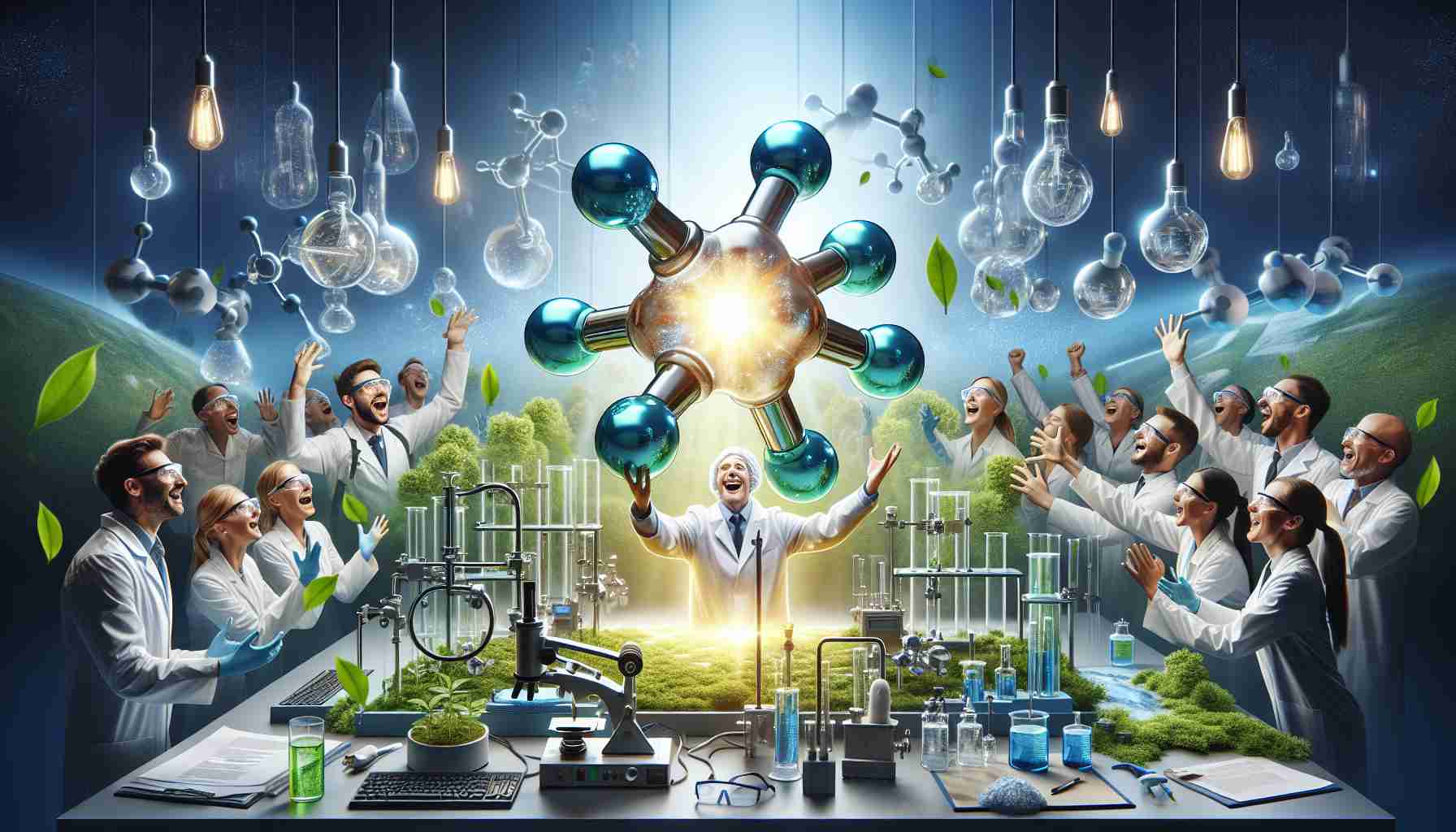A New Era in Hydrogen Production
A recent scientific breakthrough has the potential to reshape the landscape of vehicle power sources, paving the way for a cleaner and more efficient alternative to traditional fossil fuels. Research teams from prestigious institutions, including the Max-Planck-Institute for Chemical Physics of Solids and Weizmann Institute of Science, have introduced a novel class of electrocatalysts that enhances hydrogen production efficiency significantly.
Hydrogen is increasingly recognized as an eco-friendly energy source, releasing only water vapor when used as fuel. However, conventional methods of hydrogen production are often costly, energy-consuming, and reliant on fossil fuels. This latest advancement aims to tackle those issues, promoting a more sustainable and economical approach to hydrogen generation.
The researchers discovered a critical relationship between the strength of spin-orbit coupling in topological chiral semimetals and their performance as catalysts for the oxygen evolution reaction. Through rigorous experimentation, they identified RhBiS as a particularly effective material, boasting catalytic activity that far surpasses traditional options.
Published in Nature Energy, the study reveals a nearly 20% improvement in efficiency compared to standard methods. This leap in technology holds promise not only for transportation, especially in areas like shipping and heavy-duty applications, but also for industries heavily dependent on fossil fuels, offering a scalable energy solution aligned with global net-zero goals.
This innovative research underscores the significant role science plays in addressing urgent energy challenges, steering us towards a more sustainable planet.
The Broader Implications of Advancements in Hydrogen Production
As the world grapples with climate change and an urgent need to transition to sustainable energy, breakthroughs in hydrogen production stand out as vital for both society and the global economy. The increased efficiency in hydrogen generation not only provides an alternative to carbon-intensive fuels but also aligns with international goals for reducing greenhouse gas emissions. Countries are now investing in hydrogen technologies as a cornerstone of their energy strategies, aiming to future-proof their economies and create a robust green energy market.
Moreover, the emergence of hydrogen as a primary energy source could catalyze significant cultural shifts towards cleaner living. As public awareness grows around the environmental impact of fossil fuels, the push for hydrogen adoption may influence consumer preferences, prompting industries to innovate and prioritize sustainable practices.
From an environmental standpoint, adopting hydrogen could drastically reduce air pollution, particularly in urban settings where transport emissions challenge public health. Its potential to serve as an energy storage solution can also support renewable energy systems, helping to balance supply and demand.
Looking to the future, trends indicate a continuing investment in hydrogen infrastructure and technology development. As countries like Japan and Germany initiate hydrogen economies, collaboration among nations will likely grow, fostering innovations that could lead to a global green economy. This ongoing advancement not only signifies a shift in energy reliance but could also reshape geopolitical landscapes, especially concerning energy security and trade practices.
Revolutionizing Hydrogen Production: The Future of Clean Energy
A New Era in Hydrogen Production
The quest for sustainable energy sources has taken a significant leap forward with recent breakthroughs in hydrogen production technology. Researchers from elite institutions such as the Max-Planck Institute for Chemical Physics of Solids and the Weizmann Institute of Science have unveiled a groundbreaking class of electrocatalysts that dramatically elevate the efficiency of hydrogen production, heralding a new chapter in renewable energy.
What Makes Hydrogen Important?
Hydrogen is increasingly viewed as a vital component of the clean energy landscape due to its ability to produce only water vapor when consumed as fuel. However, traditional hydrogen production methods often rely heavily on fossil fuels, leading to significant environmental and economic drawbacks. This new research directly addresses these challenges, promising a more economically viable and sustainable pathway to hydrogen generation.
Key Innovations in Electrocatalysis
The research highlights a significant breakthrough in understanding the relationship between spin-orbit coupling in topological chiral semimetals and their effectiveness as catalysts in the oxygen evolution reaction. Among the materials tested, RhBiS has emerged as a standout, offering catalytic activity levels that significantly outstrip those of conventional catalysts.
Efficiency Gains in Hydrogen Production
Published in Nature Energy, the study documented an impressive nearly 20% increase in hydrogen production efficiency compared to standard methods. This improvement not only enhances the feasibility of hydrogen as a clean fuel alternative but also opens doors for its application across various transportation sectors, including maritime shipping and heavy-duty vehicles.
Use Cases for Advanced Hydrogen Production
The advancement in hydrogen production through these new electrocatalysts promises to impact several industries:
– Transportation: Hydrogen fuel cells can power electric vehicles, trucks, and ships, providing a cleaner alternative to diesel and gasoline.
– Heavy Industry: Sectors such as steel manufacturing and chemical production can significantly reduce their carbon footprint by transitioning to hydrogen.
– Energy Storage: Hydrogen can serve as an energy storage solution, balancing supply and demand in renewable energy grids.
Future Implications and Sustainability
As the world moves towards ambitious net-zero emissions targets, innovations such as this reshaping hydrogen production will play a crucial role. The research emphasizes the intersection of science and sustainability, showcasing how innovative approaches can lead to scalable energy solutions for a cleaner planet.
Limitations and Challenges
While the advancements are promising, challenges remain:
– Cost of Production: While efficiency has increased, the cost of implementing these new technologies on a large scale still poses a challenge.
– Infrastructure: Current hydrogen infrastructure must evolve to accommodate increased production and distribution needs.
– Public Acceptance: The transition to hydrogen as a mainstream fuel source relies on widespread public acceptance and understanding of its benefits over traditional fuels.
Conclusion
The breakthroughs in hydrogen production efficiency represent a significant stride toward a sustainable energy future. With ongoing research and development, the next few years could see hydrogen fuel establishing itself as a cornerstone of the global energy landscape, driving us closer to environmental goals and a healthier planet.
For more insights on renewable energy technologies, visit Nature for the latest research advancements.













